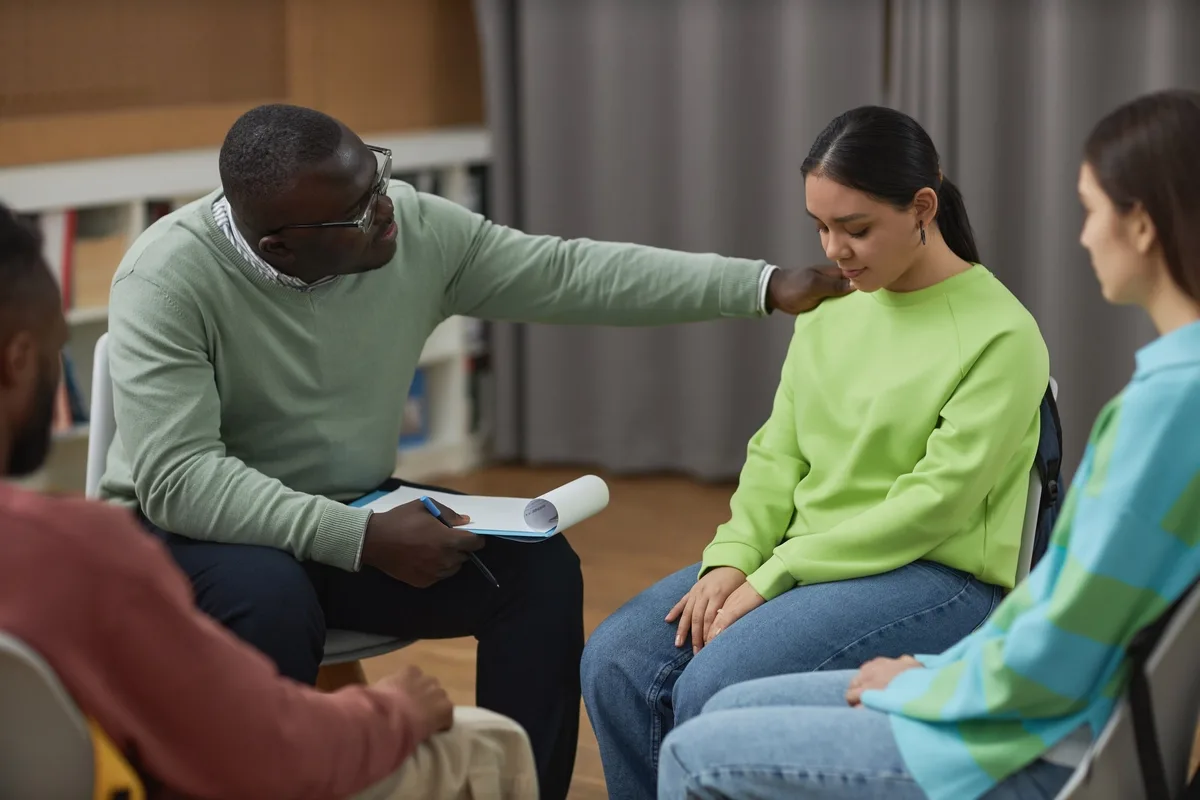24/7 Helpline:
(866) 899-221924/7 Helpline:
(866) 899-2219
Learn more about PTSD Rehab centers in Ramsey County

Other Insurance Options

Aetna

UMR

State Farm

United Health Care

Humana

PHCS Network

Ambetter

Optima

Anthem

ComPsych

Self-pay options

UnitedHealth Group

BHS | Behavioral Health Systems

Absolute Total Care

Group Health Incorporated

WellPoint

Choice Care Network

CareSource

Access to Recovery (ATR) Voucher

Magellan Health














